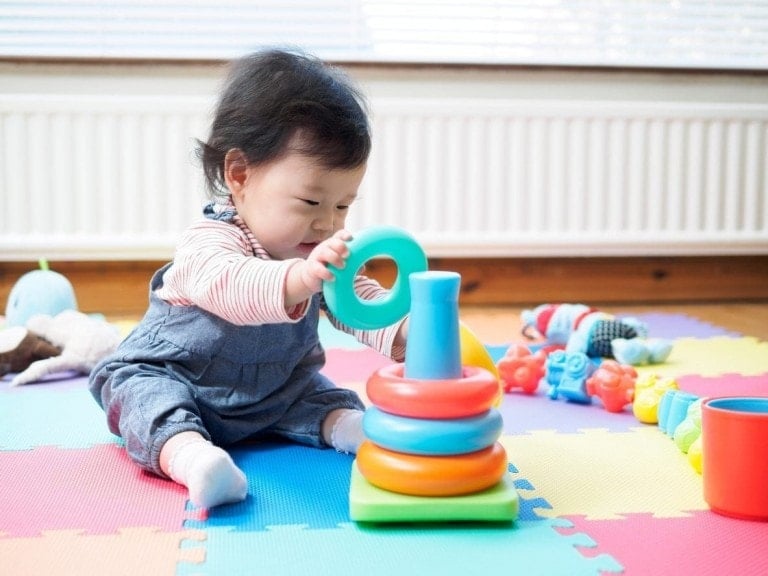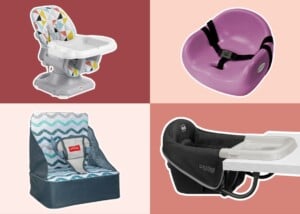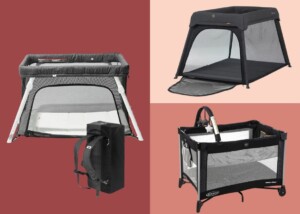Most parents can probably attest that money seems to fly out the window when they bring a new baby into this world. But with a little bit of planning and thoughtful spending, you may be able to make your dollars stretch just a bit longer. Here, we’ll explore some helpful tips for saving money on baby costs.
5 Ways To Save Money on Baby Expenses
Are you ready to trim down expenses on your new baby? Here are five easy ways to save money on baby costs:
1. Check Insurance Costs and Benefits
A quick way to save on medical costs for your baby is by comparing insurance plans. If you and your spouse both work and have an employer-sponsored health insurance plan, you need to compare costs for each other’s plans. Just ask your human resource officer or plan coordinator for these details:
- Monthly cost to add your baby to the plan
- Individual deductible limits
- Family deductible
- Copays
Your partner can ask their employer for the same information. Once you both have this information, decide whose plan to add your baby to. Please note that most insurance plans have automatic coverage language in the plan documents. This means your baby will be automatically covered for their first 30 days, and you don’t need to do anything. But be careful — some plans require baby to be automatically covered under the oldest parent’s insurance plan (even if that’s the one you opt not to use).
2. Borrow and Trade
Many new parents waste money by purchasing the fanciest, biggest, and newest gadgets for their baby, but this isn’t necessary. Most parents quickly learn you don’t need the latest toy to please your newborn. So, don’t be afraid to borrow or trade to save a little money!
If you know anyone who had a baby within the past year or so, see if they’re willing to let you borrow some of their newborn items — like a swing, a bouncer, and even clothes. If they’re like many parents, they’re probably holding on to that baby equipment for when they’re ready to have baby number two (or three). But if they’re not ready yet, they might not mind making room in their garage for a few months while you use them. Ask your friends and family to see if they’ve held on to any baby equipment or clothes they’re willing to let you borrow.
However, when it comes to borrowing, trading, or buying secondhand, make sure of a few things:
- You can easily clean and sanitize the item.
- The item isn’t past its expiration date.
- It hasn’t had any safety recalls (a quick Google search can help you determine this).
- If it’s a car seat, make sure it’s never been involved in a wreck. (If you’re unsure, then buy new.)
3. Breastfeed or Pump
If you plan to breastfeed or are able to, that’s the best budget saver. Here are a few savings ideas for breastfeeding moms:
- Borrow a breast pump. You’ll have to replace some parts with new, sanitized pieces, which should be pretty inexpensive.
- See if your insurance plan will cover the cost of a new breast pump.
- Wait to purchase any nursing bras or tops. You may want one or two to take to the hospital, but don’t spend money on new clothes until you know that breastfeeding is the right fit for you and baby.
Not every mom can breastfeed, and that’s okay! If you plan on starting with formula or are unable to breastfeed, here’s a tip: don’t feel pressured to buy the most expensive formula on the market. All formulas sold in the United States must undergo rigorous testing before they’re on the shelves.1 Just start with a more cost-effective brand or use coupons.
4. Don’t Buy Too Many Baby Clothes During Pregnancy
Every mother’s dream is to buy cute newborn clothes and fill their closet to the top — but hold off a bit. Determining how big or small your little one will be is hard. I was convinced I’d have a close-to-9-pound baby, so I only brought newborn clothes to the hospital. It never occurred to me to pick up one preemie-sized outfit, just in case. Our son didn’t even weigh 6 pounds when he decided to come early! I was stuck with drawers full of newborn clothes (that we used after he turned a month old) and had to buy preemie clothes to get us through. Plus, you’ll probably receive a lot of clothes at your baby shower and from family members to get you through the first few months.
5. Save Money at the Hospital
Hopefully, your insurance plan will cover most charges at the hospital; however, it’s good to make sure. Call your insurance provider or hospital and ask what to expect after your baby is born. They may be able to give you a range, depending on which birthing process you use (unmedicated birth or C-section). If you’re concerned about out-of-pocket costs, get a list of those from your insurance, and then make sure to say “no” at the hospital.
In addition, take the diapers and wipes the nursery provides. Look into the bassinet your baby is in — peek in drawers and shelves to grab any diapers, wipes, and creams they provide. You may even find extra swaddling blankets, a nasal aspirator, and more in your baby’s bassinet.
And there you have it — five ways to save money on baby costs that you may not have thought about! Hopefully, these tips help reduce your spending and make paying for your little one’s expenses a bit easier. Happy saving! 😉



































